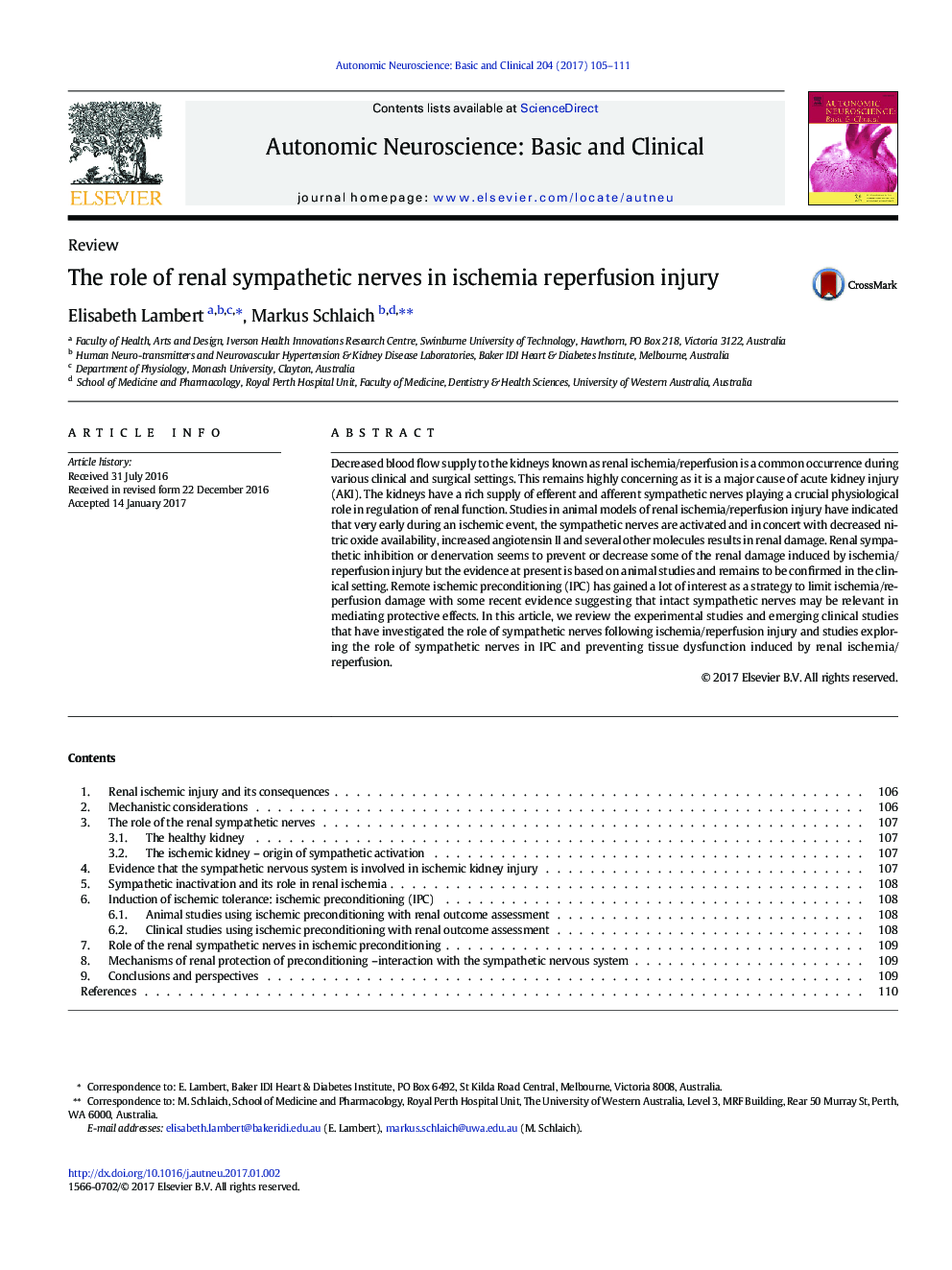| Article ID | Journal | Published Year | Pages | File Type |
|---|---|---|---|---|
| 5625979 | Autonomic Neuroscience | 2017 | 7 Pages |
Decreased blood flow supply to the kidneys known as renal ischemia/reperfusion is a common occurrence during various clinical and surgical settings. This remains highly concerning as it is a major cause of acute kidney injury (AKI). The kidneys have a rich supply of efferent and afferent sympathetic nerves playing a crucial physiological role in regulation of renal function. Studies in animal models of renal ischemia/reperfusion injury have indicated that very early during an ischemic event, the sympathetic nerves are activated and in concert with decreased nitric oxide availability, increased angiotensin II and several other molecules results in renal damage. Renal sympathetic inhibition or denervation seems to prevent or decrease some of the renal damage induced by ischemia/reperfusion injury but the evidence at present is based on animal studies and remains to be confirmed in the clinical setting. Remote ischemic preconditioning (IPC) has gained a lot of interest as a strategy to limit ischemia/reperfusion damage with some recent evidence suggesting that intact sympathetic nerves may be relevant in mediating protective effects. In this article, we review the experimental studies and emerging clinical studies that have investigated the role of sympathetic nerves following ischemia/reperfusion injury and studies exploring the role of sympathetic nerves in IPC and preventing tissue dysfunction induced by renal ischemia/reperfusion.
